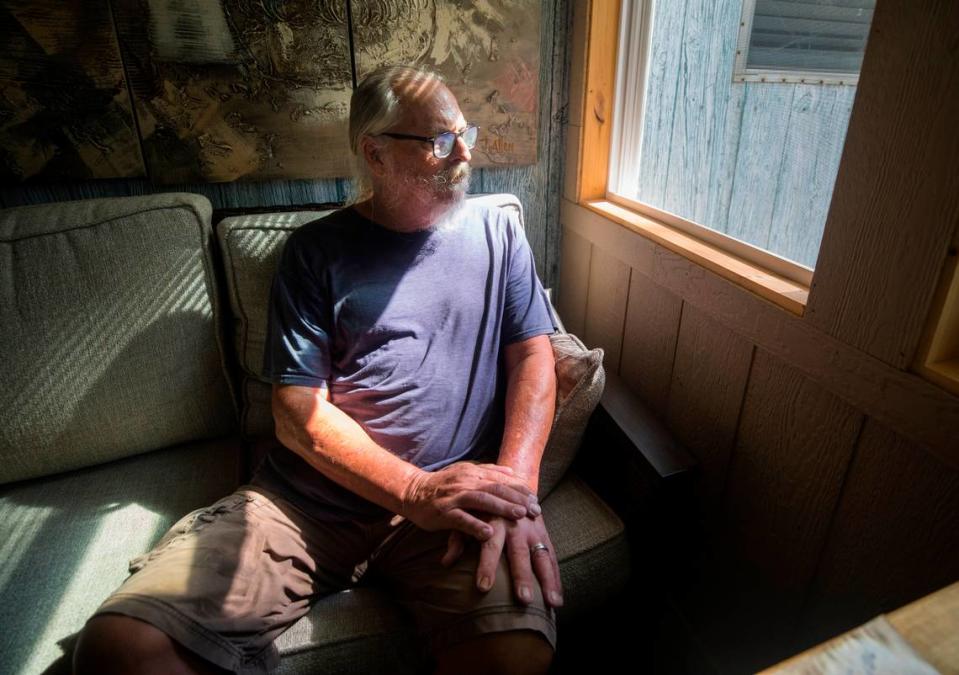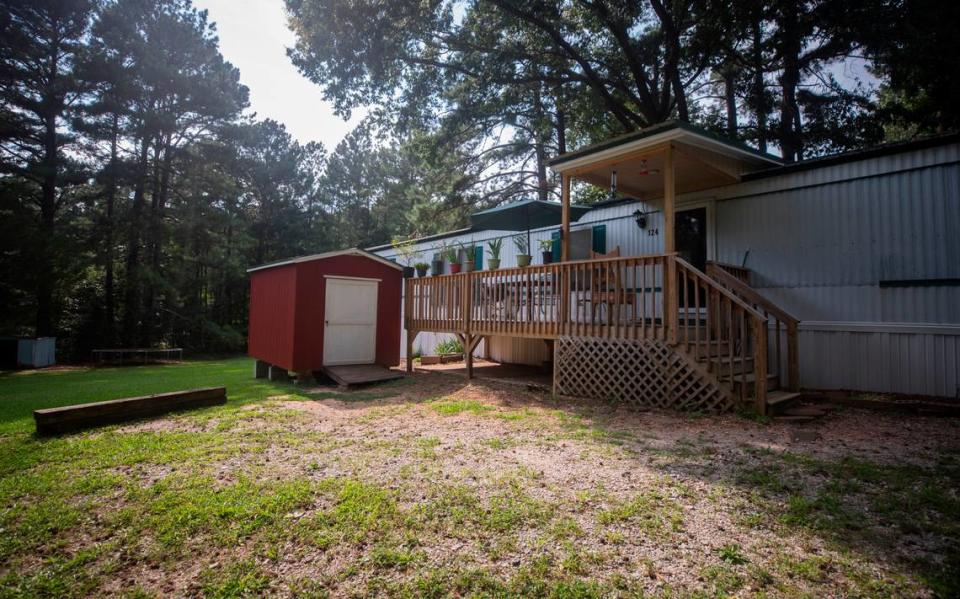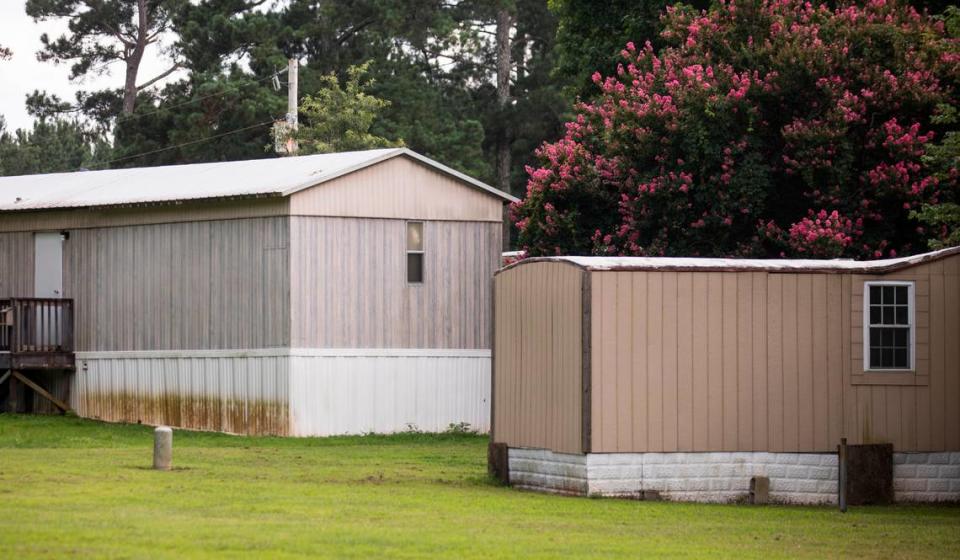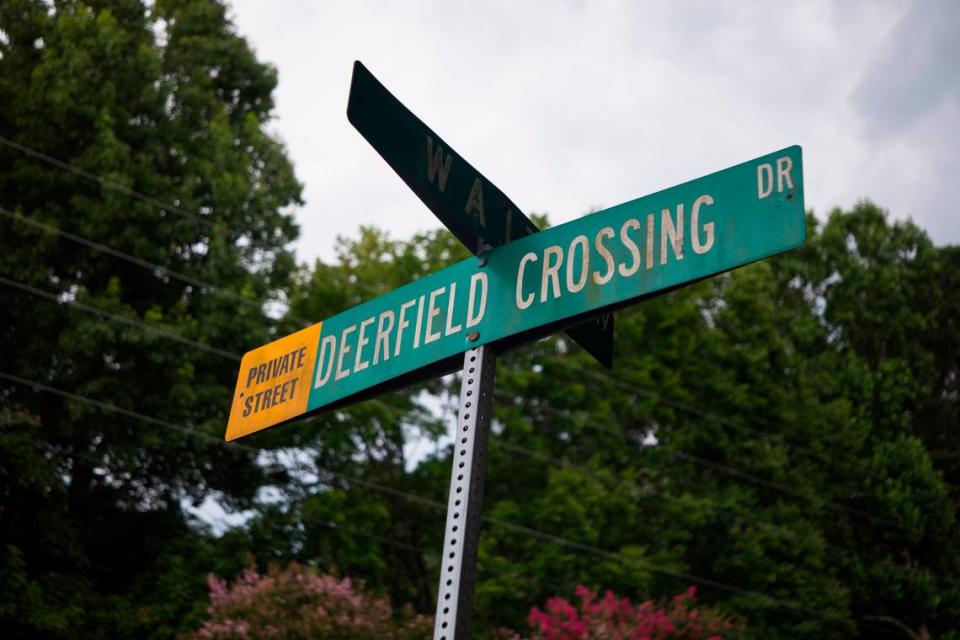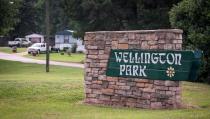NC mobile home residents face eviction deadline after opposing redevelopment plans
Wellington Park residents still hope they can buy their mobile home park in Wake Forest, but they don’t have much time left to do so. The landlord sent eviction notices last week to the 37 families who remain, giving them six months to move.
About 10 families already have left, residents and community organizers said. The rest of the remaining families decided this week to keep negotiating with the developer Middleburg Communities for more financial assistance and to seek other land in Wake Forest where they can relocate.
“We worry about that (option), because time is ticking,” said Katia Roebuck, an organizer with ONE Wake.
The park’s owner, former Wake Forest Mayor George Mackie Jr., negotiated a contract earlier this year with Middleburg Communities, which wants to build up to 260 homes and townhouses on the 36-acre tract. The Wake Forest Board of Commissioners has tentatively set a September public hearing on the rezoning request.
But residents fear being left homeless, because inexpensive housing and affordable mobile home lots are nearly nonexistent.
Jennifer Reynolds and her family are among the Wellington Park neighbors who remain.
Her husband is disabled and can’t work, Reynolds said in a July 16 interview with The News & Observer. She works at Walmart to pay the bills and also cares for her father, a longtime Wake Forest resident who lives nearby.
The news that they might have to pack up their home, son and dog, and move in the next six months has left them anxious for the future and concerned about how to pay for it, she said. They paid over $6,000 to move the 1994 mobile home six miles to the park about 10 years ago, she said.
Now, she’s not sure her home will survive a move because of a tornado last year that tore off half the roof.
“Maybe our forefathers didn’t want to make Wake Forest a town that only rich people live in,” Reynolds said. “What about some of us who can’t afford to buy houses? I can’t even afford an apartment.”
Mackie has not responded to The News & Observer’s requests for an interview, but he told The Wake Weekly newspaper last week that the park would close with or without the rezoning.
“That whole mobile park is being shut down, so there’s nothing to discuss,” Mackie told The Wake Weekly. “They ain’t got a reason to even have hope for being there after the proper procedures are being done. They’re getting the first letters now, and they will continue.”
Residents fight, get eviction notices
On July 17, 209 residents and supporters gathered at the park to bring attention to the pending sale. Mackie did not attend the news conference, although residents said they saw him driving through the park during the event.
The residents met again Tuesday to decide how to move forward, said Roebuck with ONE Wake. They continue to consult with the N.C. Congress of Latino Organizations, the N.C. Justice Center and local government officials.
Justice Center attorney Jonathan Patton declined to talk about specifics but said the Wellington Park situation is another example of how the state needs to provide mobile home owners with more protections. That includes creating a law that gives residents the first right to buy the park if it becomes for sale or incentives, including tax credits and deductions, for park owners to sell to residents.
Similar provisions in state law were enacted in 2008 to preserve mobile home parks and give their residents an opportunity to build equity in their homes, but those credits expired in 2015.
“Without such intervention, mobile home owners remain vulnerable in the protection of their homes,” Patton said in an email. “Additionally, rising housing costs make it increasingly difficult to move to alternative housing within the county and the state, and the age and condition of residents’ homes may make moving the homes themselves impossible.”
Some mobile home park residents also have reached out to U.S. Rep. David Price, a 4th District Democrat, who is co-sponsoring two bills in Congress that would established a tenant’s bill of rights for manufactured housing residents and create a grant program to help organizations and residents purchase mobile home parks from their owners.
Price is expected to visit an Orange County mobile home park next week that was sold in April to a subsidiary of hedge fund Alden Global Capital. Residents of the Ridgewood Mobile Home Park held a news conference in July outside Price’s district office in Durham and met with him in a virtual meeting.
Limited housing options
Most of the families at Wellington Park — also known as Deerfield Crossing — own their mobile homes, renting the land underneath for $300 a month. Among them are veterans, self-employed house cleaners, construction workers, retired seniors and food service employees, many of whom have lived at the park for a decade or more.
There are few options nearby for them relocate their mobile homes.
An online search at MobileHome.net shows 11 mobile home lots for sale within 50 miles of Wake Forest. The closest ones — in Raleigh and Pittsboro — are priced at roughly $130,000 each. There are no lots listed for rent within 50 miles of Raleigh, and only one lot in Holly Springs was listed in the last month on Craigslist.
The decline of mobile home parks, whether because their mom-and-pop owners are aging and looking to sell or because developers see a more profitable use for the land, is a growing affordable housing issue nationwide.
A resident-owned cooperative could buy the park from Mackie and preserve the neighborhood, residents and community organizers said. They have talked with officials from ROC-USA and its affiliate Carolina Common Enterprise about the co-op model, which is growing in popularity around the country.
But that deal can’t happen without a willing seller, Carolina Common Enterprise officials have said.
Meanwhile, Middleburg is working with the town, residents and nonprofits, including Triangle Family Services, to “be part of the solution,” spokeswoman Karen Widmayer said in an email Wednesday.
TFS “has a very successful track record of finding innovative and long-lasting solutions” for families facing displacement and homelessness, she said, and the developer is offering a $250,000 relocation payment, giving each household about $6,000.
“Our understanding is that (Mackie) intends to sell the property with or without Middleburg’s involvement and the property will not be a viable option for continued use as a mobile home park,” she said.
Roebuck and others said they appreciate the meetings with the developer and the work to find solutions, but the payment will cover only 20% to 25% of the cost for each household to find land, move and reconnect their homes.
“Where do they think these people are going when they agree to make deals with developers? I know that’s money for the town, but where are these people going. I don’t really understand,” Roebuck said. “I just feel for (the people).”

 Yahoo Finance
Yahoo Finance 
